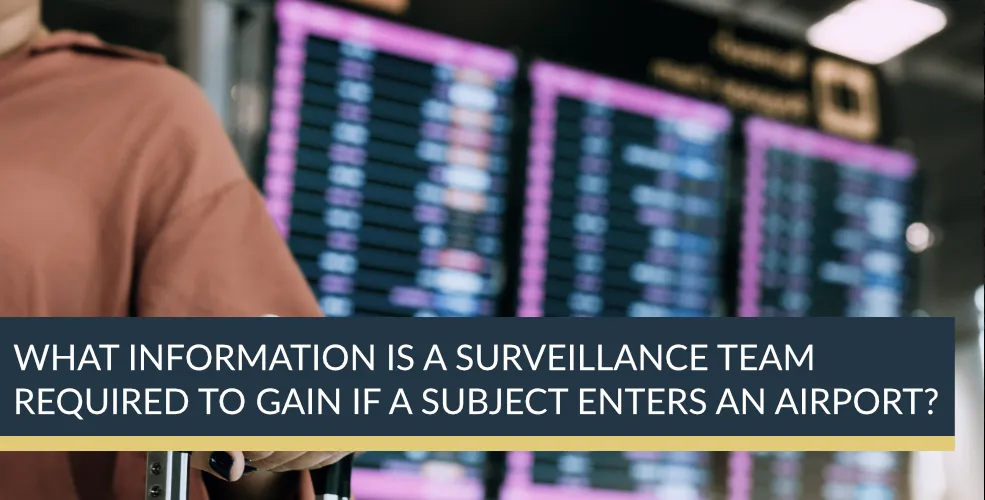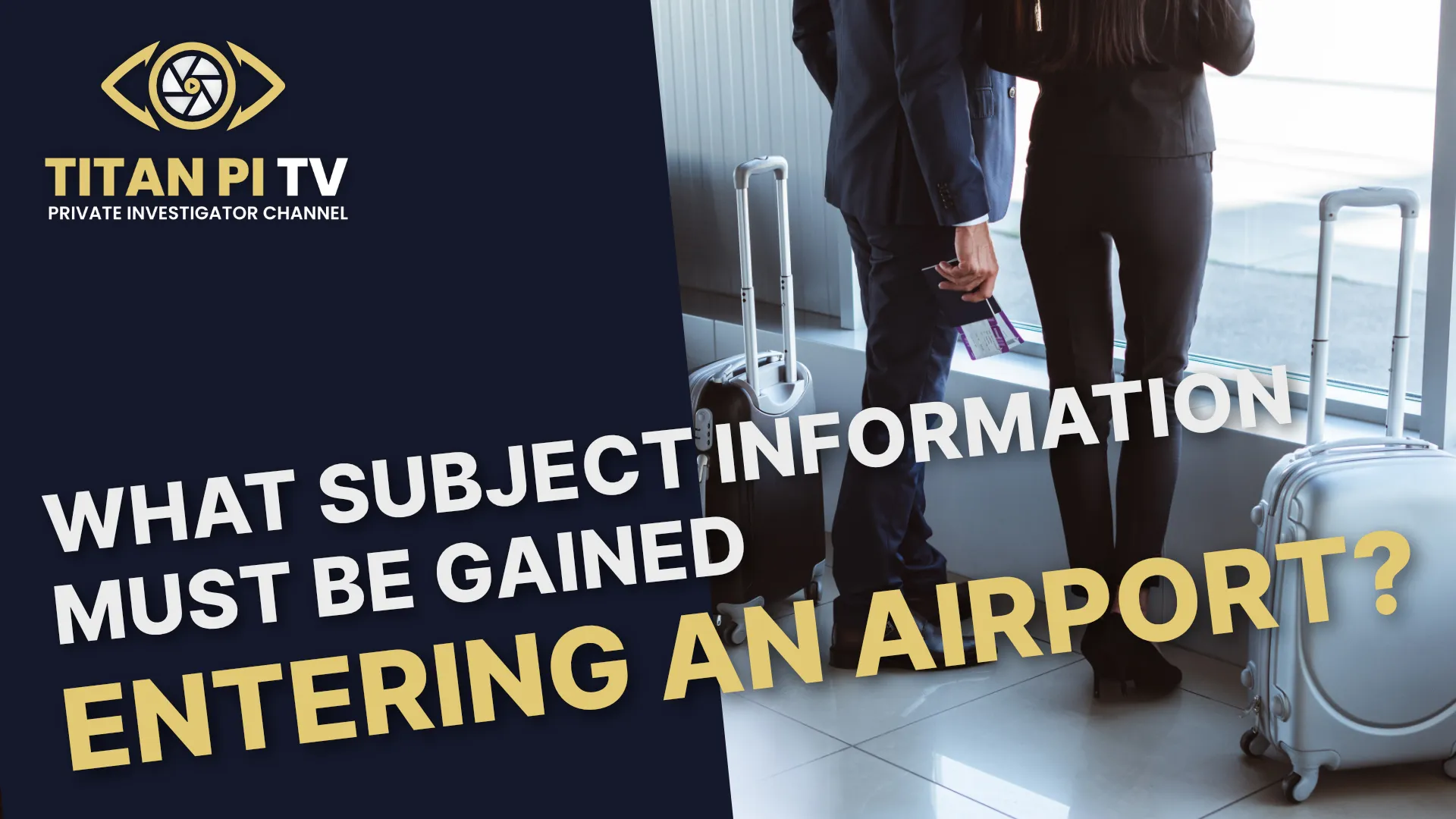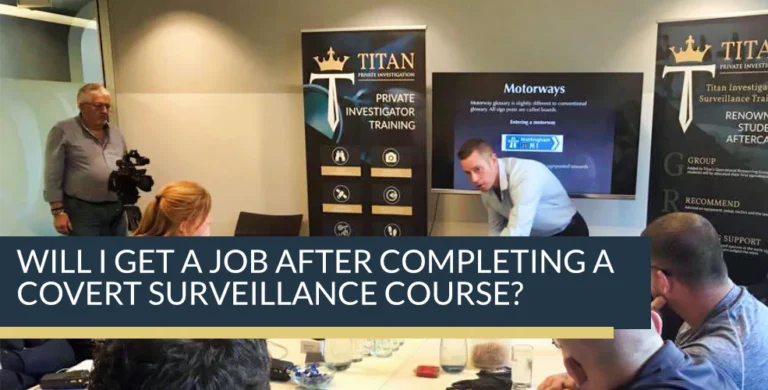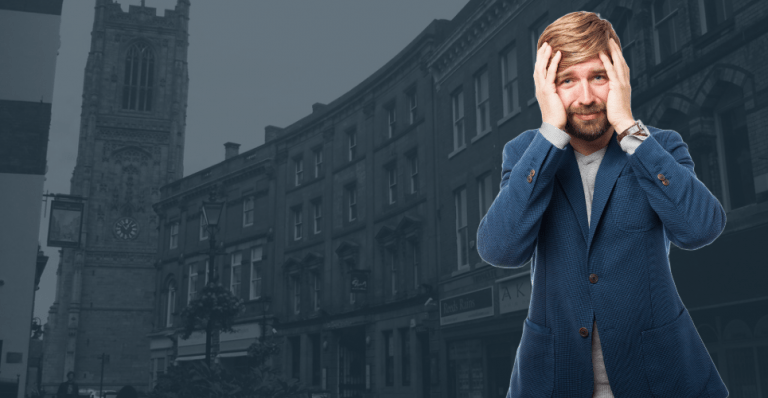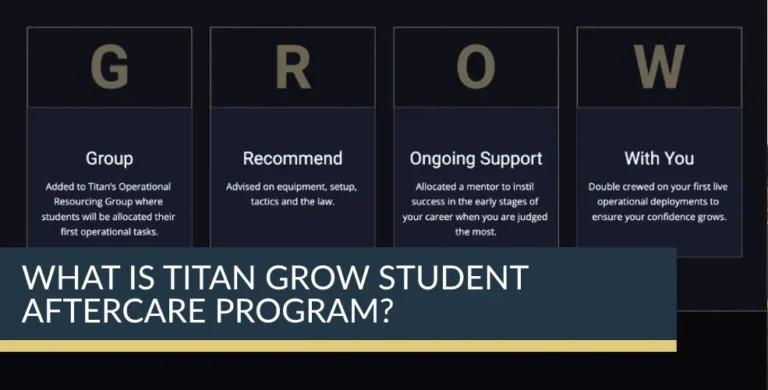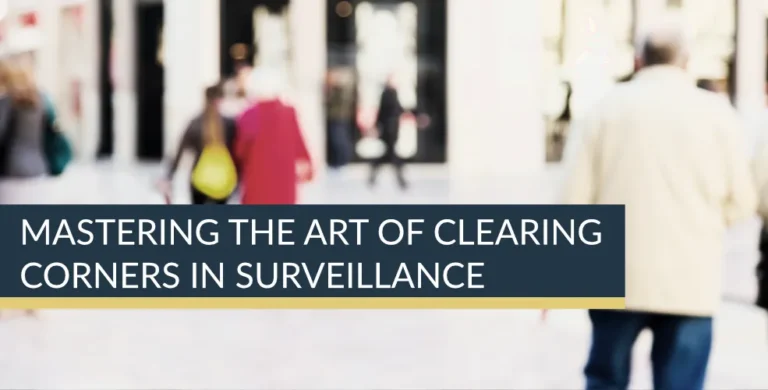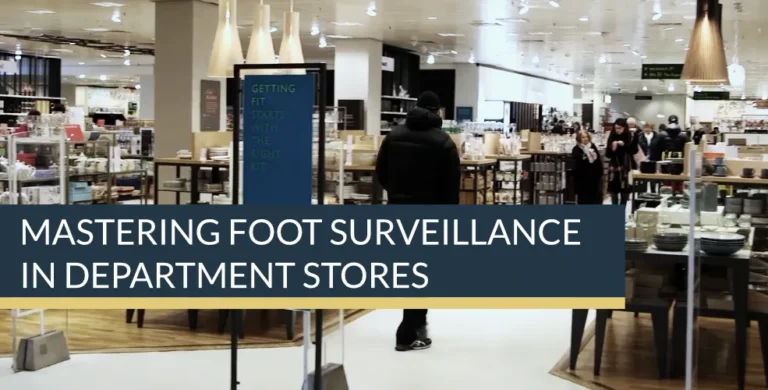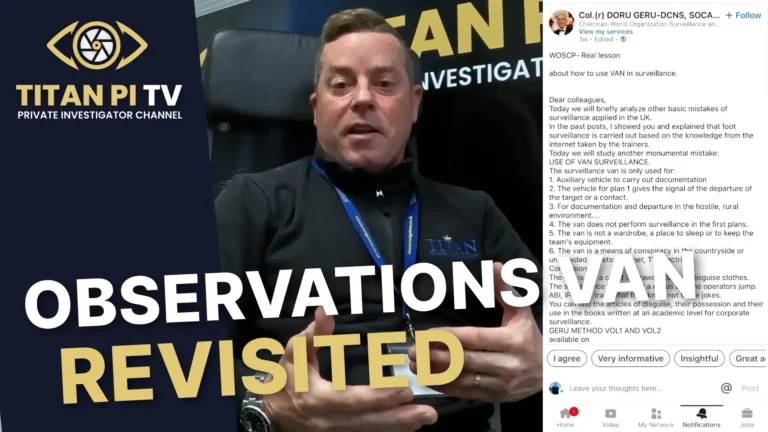What information is a surveillance team required to gain if a subject enters an airport?
If a subject that has surveillance imposed on them travels to an airport, ideally a surveillance team will require intelligence in regard to this prior, however intelligence isn’t always forthcoming or available.
99.9% of all aircraft travel is pre-planned. Gone are the days of rocking up at an airport and booking a cheap package holiday for the family or a last minute flight, however it is still possible. Ideally, a surveillance team would like to be armed with this sort of information so that tactics can be deployed to maximise the evidence gained and or forward travel with the subject(s) to their destination. However, if it is not forthcoming, a professional surveillance team will be required to act accordingly and will be prepared for every eventuality with their various arsenals of equipment and props within their vehicles.
What to expect when conducting covert airport surveillance?
On arrival at an airport the surveillance team will be expected to blend into an airport environment, so will be required to appear as travellers. An airport trolley with a suitcase or bag on will help to blend in and also to be in possession of their passport, which most surveillance operatives carry with them for such eventualities. Airports are notoriously secure and there are both overt and covert security processes in place. The surveillance team’s behaviour is likely to be monitored by security professionals as they enter to when they leave, so they will need to appear natural and as a traveller, or they will be approached.
Information they will be expected to obtain is;
- An image of the subject, subjects and associates.
- Clothing description.
- Facial images.
- A description of their luggage (this will provide an assessment in regard to how long they may be away for or be key in identifying them at the destination airport if another surveillance is deployed in the country of travel).
- Which airline they are checking into and the destination (this is fairly easy if they are checking into economy or business class).
- The time of the flight.
What if your subject is travelling by first class?
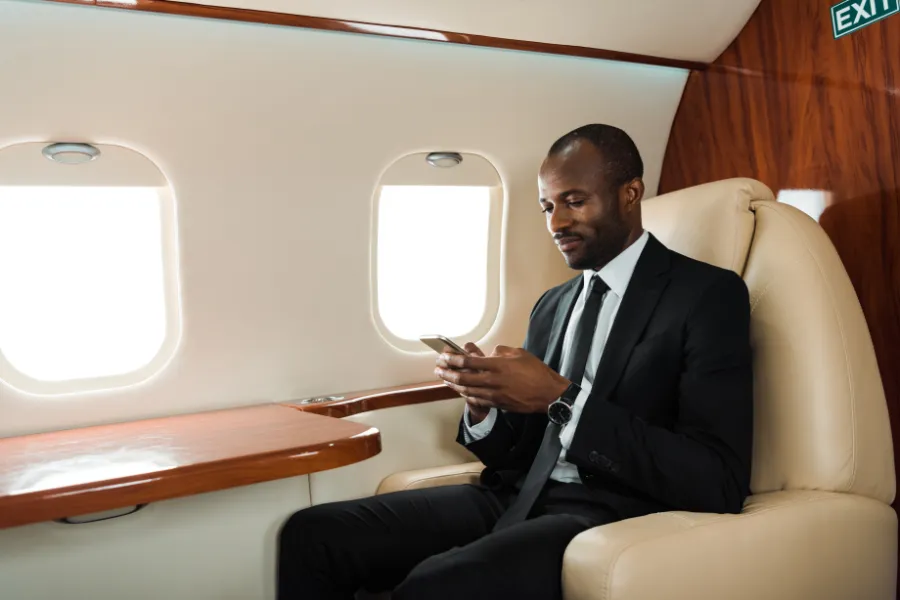
If a subject is travelling first class, then they are able to check in as early as an hour before wheels up. In some airports, first class travellers will enter a secluded area which is for first class only, and it is impossible to identify who they are flying with or to where from the departures’ hall. In this scenario, all the surveillance team can do is gain imagery of all of the above points other than point five. An image of the departures board should be taken, so all flights in the next two hours are documented, and an assessment can be made as to the likely destination. Consideration should be given, if the client agrees, to purchasing the cheapest business class ticket to get through security and airside to be able to research the lounges for your subject. This may gain intelligence as to the airline and destination as to where the subject is travelling to which will be invaluable and will offer the opportunity to deploy a surveillance team ahead and waiting in the destination country if so required for continuity.
The only issue the surveillance operative or team will then encounter is to get from airside back through security to exit the airport. This requires a watertight cover story and is long-winded, as it is not the norm. This is possible, and I have had to encounter this on many occasions.
What if a subject travels to a private airfield on a charter flight?
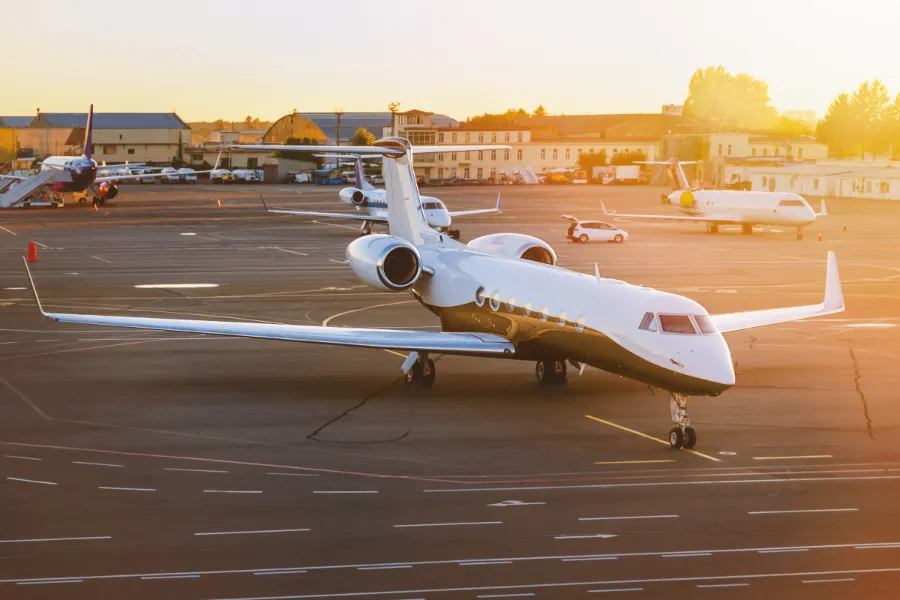
Private airfields such as Bigging Hill or Farnborough are more secure than traditional airports such as Heathrow or Gatwick. Without the correct documentation to travel you will not be able to enter the perimeter of the airfield leading to the departures or arrivals area. There is, however, usually a runway café which affords a view of all aeroplanes being boarded. This is generally for the use of aeroplane spotters, however, provides a great vantage point for a surveillance team to be able to gain vital evidence in regard to our subject(s) and or associates. It will be vital to gain imagery of the subject boarding a private aircraft and with whom. Imagery can be obtained overtly with fellow aeroplane spotters. The key evidence to gain will be the tail number of the aircraft, which will provide the flight path of the aeroplane and ultimately the destination and estimated time of arrival. In previous operations when this information has been gained, we have then been able to deploy a surveillance team ahead of and waiting in the destination country and be able to continue the surveillance.
Private Investigator Training, who do I contact for further advice?
For further advice and information in regard to Titan’s surveillance training courses or if you wish to utilise Titan on an overseas surveillance deployment please feel free to speak to us for further advice in complete confidence.
London Private Investigators and Training – Call the Titan Investigations London Office 020 39046622
Birmingham Private Investigators and Training – Call the Titan Investigations Birmingham Office 0121 7162442
Cambridge Private Investigators and Training – Call the Titan Investigations Cambridge Office 01223 662022
Derby Private Investigators and Training – Call the Titan Investigations Derby (Head Office) 01332 504256
Leeds Private Investigators and Training – Call the Titan Investigations Leeds Office 0113 4574066
Leicester Private Investigators and Training – Call the Titan Investigations Leicester Office 0116 2436520
Nottingham Private Investigators and Training – Call the Titan Investigations Nottingham Office 0115 9646950
Manchester Private Investigators and Training – Call the Titan Investigations Office 0161 3023008
Sheffield Private Investigators and Training – Call the Titan Investigations Sheffield Office 0114 3499400
Alternatively, you can contact us directly using our fully confidential contact form at enquiries@titaninvestigations.co.uk or chat directly using our Live Chat facility and one of our private investigations team will get right back to you.

